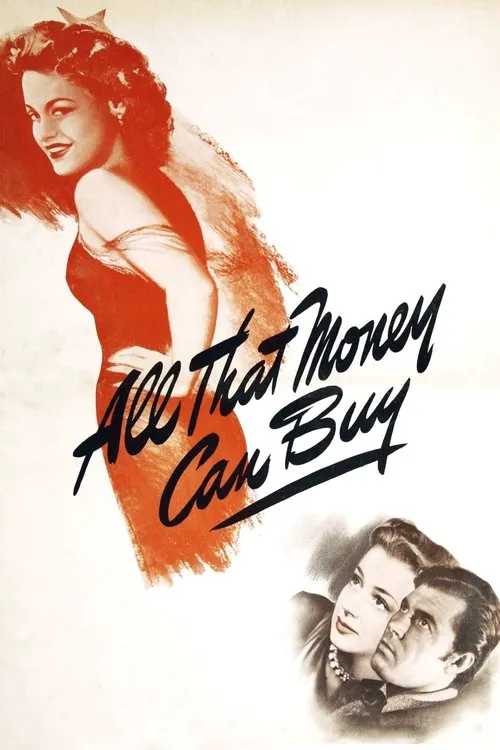All That Money Can Buy

Plot
In the 1944 film "All That Money Can Buy," directed by William Dieterle, the story revolves around the ambitious and down-on-his-luck farmer, Jabez Stone, played by Charles Laughton. Stone struggles to maintain his farm in rural New Hampshire during the tumultuous period of the late 19th century. Despite his tireless efforts, the financial woes of the farm continue to spiral out of control, putting his livelihood – and, ultimately, his land – on the line. As Jabez's prospects appear increasingly bleak, he encounters the enigmatic and sinister figure of Mr. Scratch, also known as the devil, played by Walter Huston. This charming yet menacing individual makes Jabez a proposition: in exchange for his eternal soul, Mr. Scratch promises Jabez a seven-year span of unparalleled success and prosperity. Jabez, driven by both desperation and avarice, reluctantly agrees to the deal, convinced that the rewards will outweigh the long-term risks. Once the contract is sealed, Jabez is showered with an extraordinary amount of wealth and success. His farm flourishes, his debts are paid off, and his reputation as a successful entrepreneur spreads far and wide. The once-struggling farmer now finds himself in the enviable position of being able to help those in need. He uses his newfound wealth and influence to aid his fellow farmers, becoming a benevolent leader in the community. As Jabez's rise to prominence accelerates, he develops a particular admiration for the esteemed senator, Daniel Webster, played by Edward Arnold. Webster, a well-respected figure with strong moral values, is someone that Jabez greatly respects and, ultimately, wishes to emulate. As a token of appreciation for Jabez's assistance, Webster takes the young farmer under his wing, mentoring him and encouraging his ambition. However, as the seven-year term draws to a close, Jabez is confronted with the harsh reality of his contract with Mr. Scratch. With his debt to the devil about to come due, Jabez feels his soul slipping through his fingers, and his newfound success and happiness begin to unravel. The once-confident farmer is now faced with a desperate predicament: how can he possibly outsmart the devil and retain his soul if he has failed to uphold his end of the contract? It is in this critical hour that Jabez turns to his respected mentor, Senator Webster, in the hope of securing his salvation. With time running out, Jabez beseeches Webster to represent him in a supreme court trial, where the fate of his soul will be decided. As the court proceedings unfold, Webster uses every ounce of his wit, intellect, and moral authority to argue Jabez's case, imploring the judges to recognize the inherent goodness of the fallen farmer's heart and grant him a reprieve. In the ensuing battle between good and evil, Webster engages in a spirited defense of Jabez's humanity, pleading with the judges to weigh the merits of his case and, ultimately, demonstrate compassion and understanding. Webster argues that true worth comes not from material possessions or fleeting successes, but from the good that one does for others, and it is Jabez's unwavering dedication to helping those in need that ultimately redeems him. Through this dramatic confrontation between darkness and light, the film raises important questions about morality, redemption, and the human condition. In the end, Jabez's fate – and the nature of his soul – rests squarely in the hands of the compassionate and wise Senator Webster.
Ulasan
Rekomendasi




